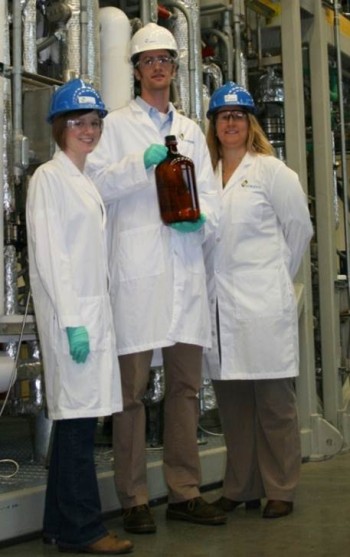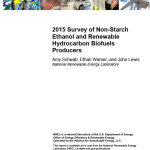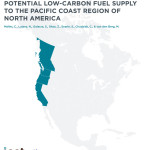Labor community: an important ally for renewable fuels
Many people like to talk about the “green jobs” stemming from renewable energy, but what exactly are these? This week E2 hosted a workshop at the Good Jobs Green Jobs conference, a national gathering of the labor community and environmental advocates exploring opportunities for partnership. E2’s workshop focused on the labor opportunities provided by advanced biofuels.
Our panelists covered the value chain for biofuels and key support from government agencies. Sarah Bittleman of the U.S. Environmental Protection Agency (recently from USDA) explained that biofuels are an administrative priority for their potential to provide rural economic opportunities by doing more with less, and can be produced concurrent with increased food crop yields.
Farmer David Kolsrud uses the corn stover from his farm for ethanol production in Minnesota. He brought home the waning opportunities for young people in rural economies by stating, “Not only are we exporting our product, but we’re also exporting our children.” David explained how biofuel production allows communities to retain their best renewable resource, their children, in an era where so many jobs have left the area.
David Hitchcock from Virent further illustrated this point by talking about the high tech skills and specialized knowledge his biofuel company is employing in Madison, Wisconsin. He described John, a recent chemical engineering graduate that is happily putting his skills to work in Wisconsin, whereas many young people with such a degree are left to look outside small towns for high tech employment.
Tom Hicks, Deputy Assistant Secretary of Navy for Energy told us about the economic drain from fuel price volatility. He expects fuel prices to rise as high as $4.72 in the next year, which translates to a $600 million drop in funds the Department of Defense can spend on national security. For this reason and many more, Mr. Hicks explained why the Navy’s Green Fleet is a strategic priority.
Finally, Joel Yudken of High Road Strategies outlined the 14,000-17,000 jobs provided by the military’s efforts alone in 2020, which is the inflection point for the total capacity advanced biofuels will provide for both the military and the civilian markets.
So back to the original question. What kind of jobs does the production of advanced biofuels provide? I’ll offer my assessment from what the panel delivered:
• Biomass production: new farm revenues in addition to food production
• Research and development: chemical engineering and research, high skill/high tech positions to convert biomass to liquid fuel
• Biofuel production: production/manufacturing positions and mechanical engineers for process optimization
• Refinement: many renewable fuels will require hydrotreating and refinement, which is ideally done in existing refineries. This is good news for refineries that are concerned about their excess capacity and looking for new domestic fuels to refine.
• Construction: New biomass conversion will require construction of specialized units, whether dedicated biorefineries or bolt-on components to existing refineries.
The net total of this adds up to some pretty significant activity. I specify net total because of the continuation of refinery and manufacturing jobs, long after we may run out of our domestic fuel reserves. We look to these jobs as a beacon of hope for many new American jobs- jobs that cannot be outsourced and produce a critical commodity.
Filed in: Blog • Mary Solecki













